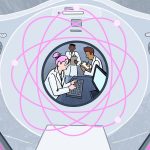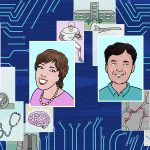career
Right now could be considered one of the best — and most uncertain — times in theoretical physics. That’s what Symmetry heard in interviews with 10 junior faculty in the field. They talk about what keeps them up at night, their favorite places to think and how they explain their jobs to nonscientists.








